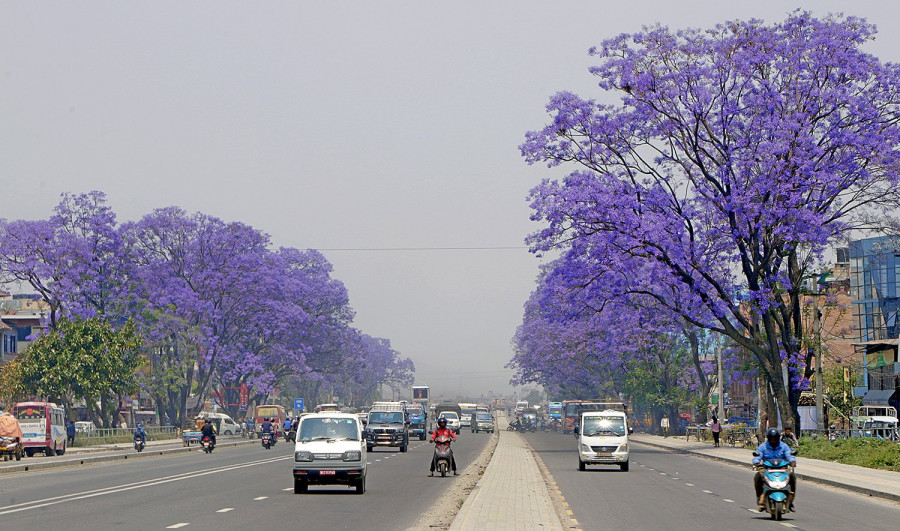Valley
Ring Road Improvement Project to axe over 2,000 trees from Kalanki to Maharajgunj
Officials say the move is part of a drive to widen the road from three lanes to eight lanes.
Anup Ojha
The Kathmandu Ring Road Improvement Project has announced it will axe 2,057 trees along the 8.2km Kalanki-Balaju-Maharajgung road section from the next week as part of a drive to expand the road from three lanes to eight lanes.
Amrit Mani Rimal, project director, said trees that are within a distance of 31 metres on both sides from the middle of the road have been marked. He said all the marked trees would be removed from the road section by September.
The project office will then auction those felled trees.
"We are just clearing the road section so that the road expansion task can move forward," said Rimal. The road expansion work is being funded by China. The project office, however, said it does not know when the road expansion work will start.
"We don't know when the Chinese government will start the project; maybe they will start the project from 2020," said Rimal. The Chinese government, which is going to fund the project, was supposed to submit the design of the project last year before October. This is the second phase of the project.
Earlier in January, the Chinese government had officially handed over the 10.5km Kalanki-Koteshwor road section to the Road Improvement Project.
Rimal said the project office has already removed 100 electric poles coordinating with the Nepal Electricity Authority, and the work is going on. According to Rimal, for the removal of the electric poles, the project office has allocated Rs 107 million, while it has sent a letter to the Ministry of Finance to release Rs 200 million to Kathmandu Upatyaka Khanepani Limited.
When the Post asked how the Department of Roads is going to regain the lost greenery along the road section, officials said they are planning to plant saplings along the expanded road after the work is completed.
"We will plant trees as we did in the Kalanki-Koteshwor road section," said Rimal, not addressing that the saplings that have been planted are not being well taken care of and are on the verge of dying.




 18.12°C Kathmandu
18.12°C Kathmandu.jpg)













